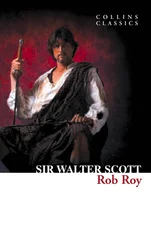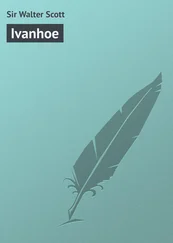Sir Scott - Ivanhoe
Здесь есть возможность читать онлайн «Sir Scott - Ivanhoe» — ознакомительный отрывок электронной книги совершенно бесплатно, а после прочтения отрывка купить полную версию. В некоторых случаях можно слушать аудио, скачать через торрент в формате fb2 и присутствует краткое содержание. Жанр: Старинная литература, на английском языке. Описание произведения, (предисловие) а так же отзывы посетителей доступны на портале библиотеки ЛибКат.
- Название:Ivanhoe
- Автор:
- Жанр:
- Год:неизвестен
- ISBN:нет данных
- Рейтинг книги:5 / 5. Голосов: 1
-
Избранное:Добавить в избранное
- Отзывы:
-
Ваша оценка:
- 100
- 1
- 2
- 3
- 4
- 5
Ivanhoe: краткое содержание, описание и аннотация
Предлагаем к чтению аннотацию, описание, краткое содержание или предисловие (зависит от того, что написал сам автор книги «Ivanhoe»). Если вы не нашли необходимую информацию о книге — напишите в комментариях, мы постараемся отыскать её.
Ivanhoe — читать онлайн ознакомительный отрывок
Ниже представлен текст книги, разбитый по страницам. Система сохранения места последней прочитанной страницы, позволяет с удобством читать онлайн бесплатно книгу «Ivanhoe», без необходимости каждый раз заново искать на чём Вы остановились. Поставьте закладку, и сможете в любой момент перейти на страницу, на которой закончили чтение.
Интервал:
Закладка:
The gigantic Front-de-Bœuf, armed in sable armour, was the first who took the field. He bore on a white shield a black bull’s head, half defaced by the numerous encounters which he had undergone, and bearing the arrogant motto, Cave, Adsum. biOver this champion the Disinherited Knight obtained a slight but decisive advantage. Both Knights broke their lances fairly, but Front-de-Bœuf, who lost a stirrup in the encounter, was adjudged to have the disadvantage.
In the stranger’s third encounter with Sir Philip Malvoisin he was equally successful: striking that baron so forcibly on the casque that the laces of the helmet broke, and Malvoisin, only saved from falling by being unhelmeted, was declared vanquished like his companions.
In his fourth combat with De Grantmesnil the Disinherited Knight showed as much courtesy as he had hitherto evinced courage and dexterity. De Grantmesnil’s horse, which was young and violent, reared and plunged in the course of the career so as to disturb the rider’s aim, and the stranger, declining to take the advantage which this accident afforded him, raised his lance, and passing his antagonist without touching him, wheeled his horse and rode back again to his own end of the lists, offering his antagonist, by a herald, the chance of a second encounter. This De Grantmesnil declined, avoiding himself vanquished as much by the courtesy as by the address of his opponent.
Ralph de Vipont summed up the list of the stranger’s triumphs, being hurled to the ground with such force that the blood gushed from his nose and his mouth, and he was borne senseless from the lists.
The acclamations of thousands applauded the unanimous award of the Prince and marshals, announcing that day’s honours to the Disinherited Knight.
CHAPTER IX
In the midst was seen
A lady of a more majestic mien,
By stature and by beauty mark’d their sovereign Queen.
And as in beauty she surpass’d the choir,
So nobler than the rest was her attire;
A crown of ruddy gold inclosed her brow,
Plain without pomp, and rich without a show;
A branch of Agnus Castus in her hand,
She bore aloft her symbol of command.
The Flower and the Leaf 1
William De Wyvil and Stephen de Martival, the marshals of the field, were the first to offer their congratulations to the victor, praying him, at the same time, to suffer his helmet to be unlaced, or, at least, that he would raise his visor ere they conducted him to receive the prize of the day’s tourney from the hands of Prince John. The Disinherited Knight, with all knightly courtesy, declined their request, alleging, that he could not at this time suffer his face to be seen, for reasons which he had assigned to the heralds when he entered the lists. The marshals were perfectly satisfied by this reply; for amidst the frequent and capricious vows by which knights were accustomed to bind themselves in the days of chivalry, there were none more common than those by which they engaged to remain incognito for a certain space, or until some particular adventure was achieved. The marshals, therefore, pressed no farther into the mystery of the Disinherited Knight, but, announcing to Prince John the conqueror’s desire to remain unknown, they requested permission to bring him before his Grace, in order that he might receive the reward of his valour.
John’s curiosity was excited by the mystery observed by the stranger; and, being already displeased with the issue of the tournament, in which the challengers whom he favoured had been successively defeated by one knight, he answered haughtily to the marshals, “By the light of Our Lady’s brow, this same knight hath been disinherited as well of his courtesy as of his lands, since he desires to appear before us without uncovering his face. Wot ye, my lords,” he said, turning round to his train, “who this gallant can be that bears himself thus proudly?”
“I cannot guess,” answered De Bracy, “nor did I think there had been within the four seas that girth Britain a champion that could bear down these five knights in one day’s jousting. By my faith, I shall never forget the force with which he shocked De Vipont. The poor Hospitaller was hurled from his saddle like a stone from a sling.”
“Boast not of that,” said a Knight of St. John who was present; “your Temple champion had no better luck. I saw your brave lance, Bois-Guilbert, roll thrice over, grasping his hands full of sand at every turn.”
De Bracy, being attached to the Templars, would have replied, but was prevented by Prince John. “Silence, sirs!” he said; “what unprofitable debate have we here?”
“The victor,” said De Wyvil, “still waits the pleasure of your Highness.”
“It is our pleasure,” answered John, “that he do so wait until we learn whether there is not some one who can at least guess at his name and quality. Should he remain there till nightfall, he has had work enough to keep him warm.”
“Your Grace,” said Waldemar Fitzurse, “will do less than due honour to the victor if you compel him to wait till we tell your Highness that which we cannot know; at least I can form no guess—unless he be one of the good lances who accompanied King Richard to Palestine, and who are now straggling homeward from the Holy Land.”
“It may be the Earl of Salisbury,” said De Bracy; “he is about the same pitch.”
“Sir Thomas de Multon, the Knight of Gilsland, rather,” said Fitzurse; “Salisbury is bigger in the bones.” A whisper arose among the train, but by whom first suggested could not be ascertained. “It might be the King—it might be Richard Cœur-de-Lion himself!”
“Over God’s forbode!” said Prince John, involuntarily turning at the same time as pale as death, and shrinking as if blighted by a flash of lightning; “Waldemar! De Bracy! brave knights and gentlemen, remember your promises, and stand truly by me!”
“Here is no danger impending,” said Waldemar Fitzurse; “are you so little acquainted with the gigantic limbs of your father’s son, as to think they can be held within the circumference of yonder suit of armour? De Wyvil and Martival, you will best serve the Prince by bringing forward the victor to the throne, and ending an error that has conjured all the blood from his cheeks. Look at him more closely,” he continued; “your Highness will see that he wants three inches of King Richard’s height, and twice as much of his shoulder-breadth. The very horse he backs could not have carried the ponderous weight of King Richard through a single course.”
While he was yet speaking, the marshals brought forward the Disinherited Knight to the foot of a wooden flight of steps, which formed the ascent from the lists to Prince John’s throne. Still discomposed with the idea that his brother, so much injured, and to whom he was so much indebted, had suddenly arrived in his native kingdom, even the distinctions pointed out by Fitzurse did not altogether remove the Prince’s apprehensions; and while, with a short and embarrassed eulogy upon his valour, he caused to be delivered to him the war-horse assigned as the prize, he trembled lest from the barred visor of the mailed form before him an answer might be returned in the deep and awful accents of Richard the Lion-hearted.
But the Disinherited Knight spoke not a word in reply to the compliment of the Prince, which he only acknowledged with a profound obeisance.
The horse was led into the lists by two grooms richly dressed, the animal itself being fully accoutred with the richest war-furniture; which, however, scarcely added to the value of the noble creature in the eyes of those who were judges. Laying one hand upon the pommel of the saddle, the Disinherited Knight vaulted at once upon the back of the steed without making use of the stirrup, and, brandishing aloft his lance, rode twice around the lists, exhibiting the points and paces of the horse with the skill of a perfect horseman.
Читать дальшеИнтервал:
Закладка:
Похожие книги на «Ivanhoe»
Представляем Вашему вниманию похожие книги на «Ivanhoe» списком для выбора. Мы отобрали схожую по названию и смыслу литературу в надежде предоставить читателям больше вариантов отыскать новые, интересные, ещё непрочитанные произведения.
Обсуждение, отзывы о книге «Ivanhoe» и просто собственные мнения читателей. Оставьте ваши комментарии, напишите, что Вы думаете о произведении, его смысле или главных героях. Укажите что конкретно понравилось, а что нет, и почему Вы так считаете.










